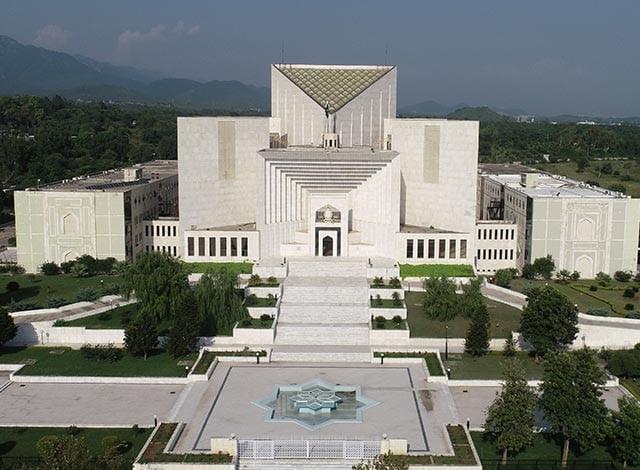ISLAMABAD:
The Supreme Court has held that intentional absence of government officials, or their travel without prior approval of an ex-Pakistan leave, cannot be treated lightly.
He warned that if the act of intentional absence or leave without authorization or traveling without the approval of an ex-Pakistan leave is treated lightly, it will become a pastime for the intentional absentees rather than an act of misconduct.
The top court ruled this in a six-page judgment, written by Justice Muhammad Ali Mazhar, while hearing a petition filed by the Punjab government against a decision of the Punjab Service Court.
According to the facts of the case, disciplinary proceedings were initiated against the law enforcement officer on July 22, 201.3 under the Punjab Employee Efficiency,
According to the facts of the case, disciplinary proceedings were initiated against a law enforcement officer on July 22, 2013, under the Punjab Employee Efficiency, Discipline and Accountability Act, 2006.
The charges included intentional absence from service from June 4, 2013 to June 23, 2013, traveling abroad to Saudi Arabia during the period of absence without obtaining ex-Pakistan leave and submitting a false medical certificate to claim leave. doctor, despite being in Saudi Arabia. Arabia at that time.
After conducting regular investigation, the competent authority granted the respondent the major penalty of reduction to a lower position of Assistant District Attorney (BS-17) from his original position of Assistant District Attorney (BS-18). for four years. on October 21, 2013.
The defendant appealed to the department, but the appeal was rejected on May 30, 2016, and he subsequently filed an appeal for protection before the court, which was admitted.
A three-judge bench of the high court, headed by Justice Aminuddin Khan, heard the matter.
The ruling points out that even if the competent authority had treated the period of absence as an extraordinary leave without pay, this does not mean that the defendant should be exonerated of the charges.
“If this were the case, then each and every case of intentional absence could be treated in a similar manner and the period of absence could be converted into extraordinary leave without any punishment,” the ruling reads.
The ruling stated that in this way the competent authority would be forever disqualified from imposing any punishment for intentional absence.
He further noted that the competent authority should wipe the slate clean, despite the accusation of serious misconduct, with a simple conversion of a period of absence into an extraordinary leave without pay, which would in fact make all disciplinary action unnecessary. , which is not the spirit of the law.
“Since the court passed the order without touching on the merits of the case, it could not present in the investigation procedure or in the investigation report recommendations in which the charges against the defendant were proven beyond any shadow of doubt and were “justly punished by the competent authority, whose sentence does not deserve any variation.”




